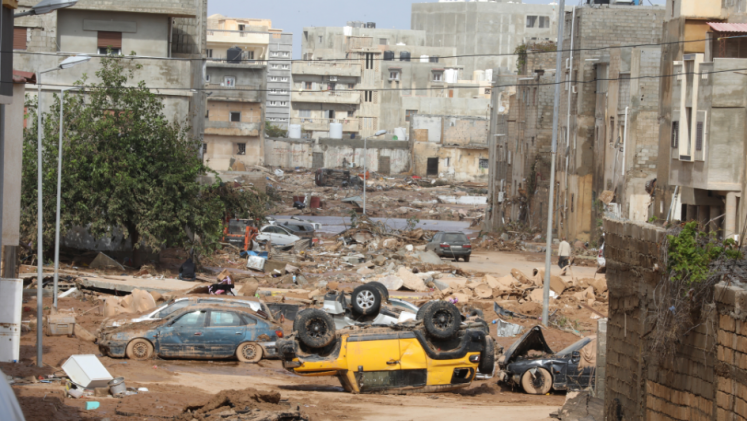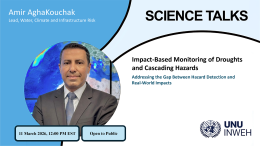Funding loss and damage refers to financing activities aimed at addressing the irreversible impacts of climate change on vulnerable communities. Debates often revolve around the responsibility of richer nations to contribute substantially to the existing funding arrangements and a new dedicated fund, given their contributions to greenhouse gas emissions. Issues of moral obligation, justice and the balance between mitigation, adaptation efforts and responding to climate impacts fuel ongoing discussions, shaping global negotiations on climate finance. Overall, the debates emphasize the urgent need for equitable and effective mechanisms to support those most affected by climate change. A recent policy brief on loss and damage for informal urban settlements by UNU-EHS researchers Magdalena Mirwald, Douwe van Schie and Dr. Simone Sandholz provides insight on why this topic particularly deserves attention at the upcoming COP28. Here are seven key recommendations to ensure that informal urban settlements and their inhabitants will benefit from the Loss and Damage Fund and other funding arrangements provided to them.
Establish an ambitious and well-resourced fund
Only a well-resourced fund can create reliable access for marginalized groups. The fund should therefore be operationalized in a forward-looking, transparent and quick manner and should receive new, additional, adequate and predictable funds from a wide range of sources that include innovative finance sources.
Consider all marginalized communities
In decision-making regarding loss and damage finance, people living in informal urban settlements should not be overlooked or forgotten. Using a consistent formulation like “groups and communities particularly vulnerable to the adverse effects of climate change (including women, youth and Indigenous Peoples, marginalized and informal communities and climate-induced migrants)” should sufficiently ensure inclusion.
Representation in the governing instrument is key
Ensuring representation of marginalized communities and civil society includes their presence, involvement and consultation in all stages of decision-making. Including civil society organizations from developing countries and members of marginalized communities in formal governance arrangements should be considered for a forward-looking operationalization of the fund.
Facilitate direct access
Make flexible funding quickly and easily accessible to civil society and community-based organizations, which often are the main supporters and first (if not only) responders after extreme events in informal settlements. Simplify eligibility and reporting requirements and offer capacity-building to local stakeholders to ensure that they can actually access funds and meet funding and adequate reporting requirements.
Promote inclusivity on the national level
With national funding mechanisms and national entities likely receiving most of the funding, accreditation standards should comprise inclusivity and equity to ensure that marginalized communities will benefit. Respect for approaches based on human rights, meaningful participation of affected communities and social safeguards such as against involuntary resettlements and forced evictions are essential.
Funding Arrangements and Technical Assistance must reach informal urban settlements
All organizations and donors addressing loss and damage should adjust and add funding to reach marginalized communities. The Santiago Network, a UN platform facilitating Technical Assistance on climate-induced loss and damage, should ensure benefiting underprivileged communities. Methodologies for needs assessments should be improved and adjusted to reflect the reality of informal urban settlements.
Embrace a transformative approach
Loss and damage funding should be used in a transformative manner based on the “build back better” principle, allowing flexible funding use that combines responding to loss and damage with forward-looking and just urban development approaches. Such approaches could include upgrading, formalization and land tenure security. If, as a last resort, a relocation is carried out, the benefits of the people being relocated should be prioritized through inclusive protocols and sufficient funds.





